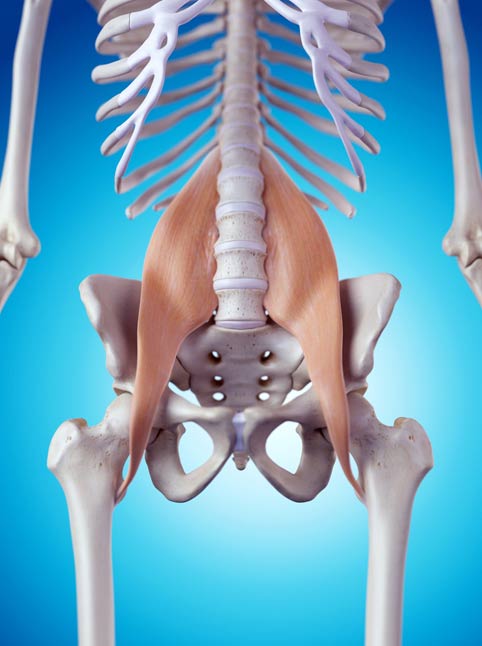Pinched Nerve Shoulder
 A pinched nerve refers to a condition where too much pressure is applied to the tissue surrounding the nerve, including a bone, muscle or cartilage. A pinched nerve is sometimes very pain and uncomfortable, especially when it affects the shoulder blade. This article will introduce a pinched nerve shoulder blade, its causes, symptoms and treatment in details.
A pinched nerve refers to a condition where too much pressure is applied to the tissue surrounding the nerve, including a bone, muscle or cartilage. A pinched nerve is sometimes very pain and uncomfortable, especially when it affects the shoulder blade. This article will introduce a pinched nerve shoulder blade, its causes, symptoms and treatment in details.
Nerves extend from your brain and spinal cord, sending important messages throughout your body. If you have a pinched nerve (nerve compression) your body may send you warning signals such as pain.
Damage from a pinched nerve may be minor or severe. It may cause temporary or long-lasting problems. The earlier you get a diagnosis and treatment for nerve compression, the more quickly you’ll find relief.
In some cases, you can’t reverse the damage from a pinched nerve. But treatment usually relieves pain and other symptoms.
Signs and Symptoms of a Pinched Nerve
If a pinched nerve is causing your shoulder pain, you’ll need a thorough physical exam of your neck and shoulder to diagnose the problem. However, there are signs that may help steer you and your doctor in the right direction. A pinched nerve usually causes pain in one shoulder only. It’s also typically a sharp pain, as opposed to a dull ache or a strain that you might feel if you overworked your muscles.
Pain may also worsen if you turn your head. Neck pain and headaches in the back of your head are also signs that the cause of all this discomfort is a pinched nerve.
A pinched nerve may also leave you with a feeling of “pins and needles” in your shoulder. The joint may also feel numb or weak when you try to lift something. In some cases, symptoms extend from the shoulder down the arm to the hand.
These are some of the more common symptoms of pinched nerves:
- Pain in the area of pinched nerves, such as the neck or low back
- Radiating pain, such as sciatica or radicular pain
- Numbness or decreased sensation in the area supplied by the nerve
- “Pins and needles” or a burning sensation
- Muscle weakness in the affected area
- Frequent feeling that a foot or hand has “fallen asleep”
- The problems related to a pinched nerve may be worse when you’re sleeping
- Sometimes symptoms worsen when you try certain movements, such as turning your head or straining your neck.
Causes of a Pinched Nerve
Compression (increased pressure and stress) placed on a root nerve is the primary cause of a pinched nerve, which interferes with normal signals regarding pain.
There are several locations in the body where pinched nerves are common and numerous reasons that someone might develop a pinched nerve. The causes of a pinched nerve can include:
- Herniated disc, caused from a disc tearing or weakening
- Wear and tear associated with aging and inflammation
- Poor posture, such as forward head posture
- Obesity
- Repetitive movements that wear down or irritate tissue
- Staying in one position for long periods of time, such as those related to someone’s job or hobbies
- Injuries, such as trauma, tears and sprains
- Bone spurs, which narrow the spaces where nerves travel
- Recovering from conditions or treatments that cause neuropathy, including breast cancer and diabetes
- Arthritis and degenerative joint diseases
Treatment for Pinched Nerves
How long it takes for symptoms to end can vary from person to person. Treatment varies, depending on the severity and cause of the nerve compression.
You may find that you benefit greatly from simply resting the injured area and by avoiding any activities that tend to worsen your symptoms. In many cases, that’s all you need to do.
If symptoms persist or pain is severe, see your doctor. You may need one or more types of treatment to shrink swollen tissue around the nerve.
In more severe cases, it may be necessary to remove material that’s pressing on a nerve, such as:
- Scar tissue
- Disc material
- Pieces of bone
Treatment may include:
- NSAIDs. Nonsteroidal anti-inflammatory drugs (NSAIDs) such as aspirin, ibuprofen, or naproxen may reduce swelling.
- Oral corticosteroids. These are used to reduce swelling and pain.
- Narcotics. These are used for brief periods to reduce severe pain.
- Steroid injections. These injections may reduce swelling and allow inflamed nerves to recover.
- Physical therapy. This will help stretch and strengthen muscles.
- Splint. A splint or soft collar limits motion and allows muscles to rest for brief periods.
- Surgery. Surgery may be needed for more severe problems that don’t respond to other types of treatment.
Work with your doctor to find the best approach for treating your symptoms.
The Body’s Most Primal Muscle (You’ve Never Heard of Let Alone Trained)
Today I want to tell you about the body’s most primal muscle….that you’ve probably never heard of (let alone trained).
Your hips are the bridge between your upper body and lower body. They are at the center of your body’s movement.
Sitting within the well of your hip and lower spine is the psoas major muscle, one of the two muscles that makes up the iliopsoas.
It’s often called the “mighty” psoas (pronounced so-az) for the many important functions it plays in the movement of your body.
The psoas is the only muscle in the human body connecting the upper body to the lower body.

The muscle attaches to the vertebrae of the lower spine, moves through the pelvis and connects to a tendon at the top of the femur. It also attaches to the diaphragm, so it’s connected to your breathing, and upon it sits all the major organs.
A functioning psoas muscle creates a neutral pelvic alignment, stabilizes the hips, supports the lower spine and abdomen, supports the organs in the pelvic and abdominal cavity and gives you greater mobility and core strength.
When it functions well, it has the power to…
… help you achieve peak performance day after day after day.
… rapidly drop ugly body fat that stubbornly clings to your body.
… train harder, heavier and gain strength faster than you thought possible.
… hit your peak of sexual health.
… flood your mind and body with renewed energy and vigor.
Put simply, this muscle is the core of activity in your body. So, when it’s out of balance or if the psoas tightens, there are serious consequences which flow throughout the body.
That’s why I urge you to try these…..


